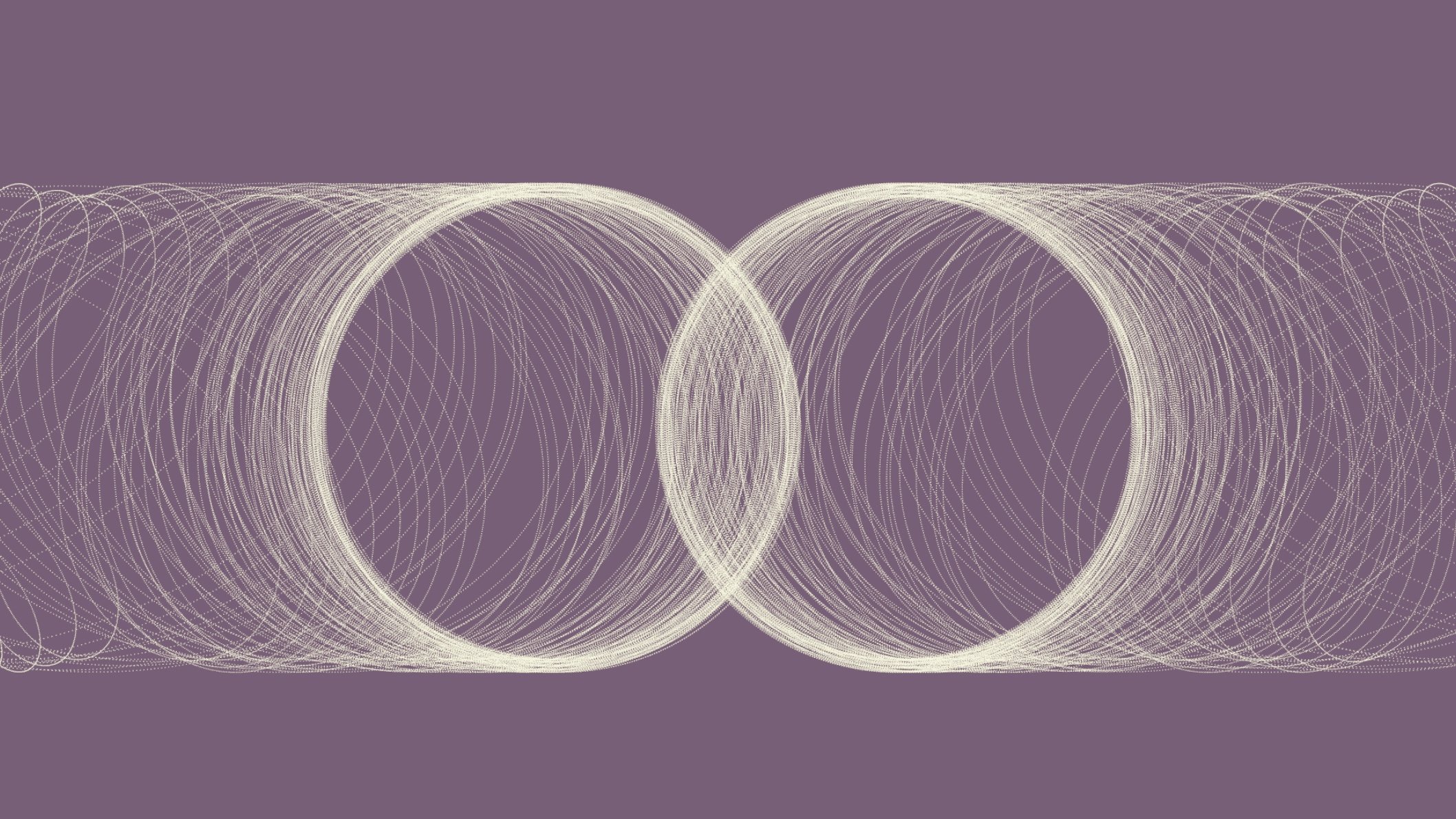Please consider supporting this work on Patreon: https://patreon.com/kindmind
The paradox of curiosity is a contest between our innate desire for knowledge and our aversion to uncertainty.
A delicate balance can be negotiated when the curious awareness is anchored to its Latin word origin. "Cura" meant cure, care, concern or even choosiness. Put simply, curate the curiosity. Then, it serves as a transformative force, guiding us on the perpetual quest for understanding and self-discovery.
In our conversation and beyond, let this spark of inquiry light the way up - towards kindness and necessary innovation. Embracing curiosity, we become weavers of our own wisdom, ever learning never concluding.
(music “Everything is Beautiful” by Solar Plexus)
You can support this work and access bonus content at https://patreon.com/kindmind
Today, we often associate adventure with planned activities or deliberate pursuits as is the case with travel itineraries or business ventures of calculated risk with defined goals.
However, the prefix ad in the word "adventure" means "towards" and therefore indicates that in the true spirit of adventure, the unknown is not just a means to an end but the end itself. In other words, the adventurous life is one that journeys beyond the familiar or comfortable and towards surrender and acceptance of the divine mystery.
This episode explore various perspectives on adventure and how it has been associated with rites of passage, renouncing or risking self-interest and the quest for harmony with the natural world.
(Music “Even” by Bing Satellites)
Mary Oliver wrote that "empathy is a kind of seeing, and it involves imagination as well as vision."
The word "empathy" has origins in Greek "Empatheia" and the root "pathos," which means "feeling." It was first introduced to the English language in the early 20th century as a translation of the German word "Einfühlung," which means "feeling into." The term was initially used in the context of aesthetics and art appreciation.
Over time, the concept of empathy has evolved to encompass a broader range of psychosocial processes associated with 1) affective empathy (experiencing or sharing the emotions of another) and/or 2) cognitive empathy (understanding the perspective of another). Empathy is a crucial component of emotional intelligence and the development of meaningful relationships.
The opposite of empathy is apathy or the lack of feeling. So as a virtue, empathy can be the foundation for generating compassion and a motivating energy for prosocial behavior. However, it could also be argued that the value of empathy is unstable on its own and may need to be balanced with rationality and discernment in order to navigate between the extremes of excessive empathy and calloused indifference.
Otherwise, the drawbacks involve our susceptibility to emotional exploitation as targets of manipulative marketing or weaponized empathy. There is also the risk of empathy distorting facts as evidenced by proximity bias (preference for those close in distance or likeness) and other modes of selective empathy, short-term focus, and the prioritization of identifiable individuals (stories) over large groups or abstract statistics. These limitations have inspired the effective altruisim movement which aims to update our evolutionary empathy instincts to match the often complex modern social problems.
Additionally, unbound empathy can lead to distress and burnout. Preoccupation with the feelings of others can result in decision paralysis or the hindering of our ability to respond timely and skillfully. When a river floods its own banks, it turns turbulent and loses the balance that sustained its nourishing flow; or like the tides of the sea, we naturally require a cycle of rising and retreating.
Ultimately, empathy's true spiritual power reorients to our recurring theme of kindness and discovering our underlying circulation with totality. Feeling into oneness. It is an elegant common cornerstone among most major religions. At the heart of their moral philosophy, the empathic aphorisms enshrine the same message in colorful ways.
Beyond "The Golden Rule," other verses include "the whole world is a family" in the Rigveda, "all beings are Buddha nature" in the Lotus Sutra, and "be kind, for everyone you meet is fighting a hard battle," attributed to Philo of Alexandria.
This episode explores the ends of empathy in all its bittersweetness.
(Music “To New Beginnings” by Bing Satellites)
Historically, morality was in the domain of religion. Although most existing faiths claim their teachings go back to the dawn of time, we can understand that these belief systems have emerged and disintegrated like empires.
However, scholars trace living spiritual traditions of the Indian subcontinent to the 15th century BCE suggesting seniority at least among scriptures. The cornerstone of these and many other organized moral philosophies around the world is nonviolence. Also known as ahimsa in Sanskrit, it is the central theme of Jainism and the very first step in the first (yama) of eight limbs of yoga in Hinduism.
This ancient virtue can also be found as a basis for other maxims and codes around the world as attempts to do the least harm such as the golden rule, Mill’s utilitarianism or Kant’s categorical imperative. Despite this principle being woven into the fabric of social construct, it seems so many civilizations fall way short of its vision.
In this episode, we will explore the role of nonviolence today and the challenges or limitations. Violence is quite prevalent in nature, so it cannot be only a matter of living more naturally. Some modern thinkers assert that you cannot have life without death elsewhere nor construction without destruction. So, what about other life forms, self-defense, war, criminal justice, disease, mental health, etc?
If there is a time to kill, then perhaps the important clue for spiritual growth lies in ahimsa’s explanation in Jainism. Guided by simplicity, necessity and intention, one can aspire to cultivate a mind with less and less desire to increase suffering while adopting a lifestyle that harmonizes with the balance of the broader ecological community to which we belong.
(intro music “New Apartment” by Coldbrew and “Light in the Summer Air II” by Ethereal Ephemera)
In 1976, German social psychologist Erich Fromm published a book which presented the titular question, "To Have or To Be?"
This philosophical inquiry would resurface throughout his work as two distinct modes of existence. He further claimed that modern society in its materialism prefers having.
On this podcast, we often consider the dialectic of being vs doing. Well, Portuguese poet Fernando Pessoa wrote, "to have is to tarry." In a sense, the more you have, the more you have to do - which can weigh you down in terms of freeing your mind.
But does that mean that the goal of spiritual growth would be to eliminate possessions? I don't think it's that simple. It is more about transcending possessiveness.
There is a clear cultural example of this difference when comparing the legacies of human relations with the land or ecology. If you look at a map of Native Land that shows historically Indigenous territories, you will not find the straight lines and rigid markers as is the case with modern states and countries. It's much more fluid like the area of defense on a baseball field, with any location more or less covered by a player. This ties into the notion of stewardship as opposed to ownership of the land, as well as the experience of land as a community rather than a commodity.
Today, what could change with our life, work, responsibilities and relationships if we brought this awareness into our consciousness and mode of existence?
What changes and what matters more in the moment between:
having something and being present?
having friends and being friendly?
having success and being sincere?
having love and being loving?
(intro song “New Apartment” by Coldbrew and “To New Beginnings” and “Clouds in Dark Skies” by Bing Satellites)
You can support this work and access bonus content at https://patreon.com/kindmind
Unlike other virtues that may be situational or context-dependent, integrity is seen as a constant, underlying quality that inspires and threads all of our actions and decisions into a spiritual tapestry.
It is not simply a commitment to certain core principles but a psychosocial, structural and creative coherence in how we live our lives. However, integrity is delicate, easily unraveled, and difficult to repair. Therefore, it involves maturity in steadfastly navigating the tensions between personal values and external pressures, temptations and social norms.
Intro music “New Apartment” by Coldbrew and “Herbarium” by Lee Hannah.
You can support this show on Patreon https://patreon.com/kindmind and access bonus content.
This episode considers the impact of artificial intelligence (AI) on society and the human condition, and explores the ethical and existential concerns surrounding it.
We also contemplate the limitations of AI in terms of consciousness, creativity, and complex emotional and social contexts, and warn of the potential dangers of its weaponization for propaganda or bias and the possibility of humans becoming too dependent on technology.
This episode also emphasizes the need for collaboration across different fields to ensure that AI is developed and deployed in an ethical and equitable manner, and to enhance the human condition.
Intro music “New Apartment” by Coldbrew and “Cultivate” by Lee Hannah (https://leehannah.bandcamp.com/)
If you would like to support this podcast, check out the options and benefitis here: https://patreon.com/kindmind
The word pray comes from the root sound “prek” as in precarious. It means to entreat or ask.
This corresponds to the often instinctive urge to seek something greater than ourselves or a higher power when in need or at a loss of options.
Check out the psychology and demographics of prayer in America in the intro of this episode and then learn more about the contemplative art and practice of praying power.
Intro music “New Apartment” by Coldbrew and “Everything is Beautiful” by Solar Plexus.
You can support this show and access bonus and companion content to this episode including the Q+A session and a guided meditation on validation here: https://patreon.com/kindmind
Validation means to confirm or authenticate and allows people to feel heard and respected.
This episode explores how validation of others and self-validation are both key skills for emotional well-being and effective interpersonal interactions. It can help partners and teams be more present to each other and engage with respect and genuineness in order to build positive cultures of cooperation and support.
(Intro music “New Apartment” by Coldbrew and “Bathed in Winter Sunlight” by Ethereal Ephemera)
Happy New Year! You can support this podcast at https://patreon.com/kindmind
The theme is HOPE. It stands out among other virtues because it requires negative circumstances and straddles over the present and towards the future.
Charles Snyder was a psychologist and dedicated researcher of hope, who emphasized its relevance in the context of doing vs being. Accordingly, hope is a motivational set of cognitive traits that give people a reason to continue pursuing their goals despite the unpredictable nature of the human experience.
He had a beautiful quote,
"A rainbow is a prism that sends shards of multicolored light in various directions. It lifts our spirits and makes us think of what is possible. Hope is the same – a personal rainbow of the mind."
It suggests that additional pathways may exist or appear that we cannot always comprehend in the present. The past and the future are like the ends of that rainbow. They seem to be really out there, but they are always inaccessible.
However, a bigger view is always possible in the here and now.
(Intro music “New Apartment” by Coldbrew and “Cinnabar Sunset” by The Lovely Moon)
Nadine Strossen is Professor of Constitutional Law at New York Law School and the first woman national President of the American Civil Liberties Union, where she served from 1991 through 2008.
A frequent speaker on constitutional and civil liberties issues, her media appearances include 60 Minutes, CBS Sunday Morning, Today, Good Morning America, The Daily Show, and other news programs on CNN, C-SPAN, Fox, Al-Jazeera, and in Australia, Britain, Canada, France, Germany, Italy, and Spain. Her op-eds have appeared in The New York Times, The Washington Post, The Washington Times, and USA Today, among others.
Live Free or Dialogue is a video conversation series within Michael Todd Fink's "Kind Mind" podcast and based on the etymology of the word dialogue: two individuals (di) communicating with openness, respect and mutual search for meaning (logos).
You can support the Kind Mind podcast and access bonus content at https://patreon.com/kindmind
Mutuality is the way of nature, and we can observe it in the ecosystems. Look at the circle of shelter and food chains as well as relocation and procreation among the stationary plants and mobile animals.
Interdependence is a spiritual word because it makes room for the paradox of human life. It presupposes a relationship among parts but also implies oneness or unity.
Can you ever be truly alone or independent from a single element, like air or water or light?
Close your eyes and realize how reliant you are on that which is “outside” yourself.
Support this show at https://patreon.com/kindmind
(Intro music “New Apartment” by Coldbrew and “Absense of Definition” by Kowalski Room)
Happy Thanksgiving! Wishing you love and light this holiday season. If you would like to pitch in a $5 pledge to help support this podcast and access bonus content, you can at https://patreon.com/kindmind
send mail to: michaeltoddfink@gmail.com or @michaeltoddfink
Registration for “I Am Not My Anxeity” virtual course is here.
Since nothing is permanent, what is it that we really see?
In the Venn diagram of the unseen, some are invisible but some are merely overlooked or ignored.
This episode explores the meaning of sight and the process of seeing from the wisdom of science, art and mythology.
(Intro music “New Apartment” by Coldbrew and “Flying Into The Sun” by Ethereal Ephemera and episode artwork on website by Emily Dawn Duforest)
Use the link below to test your cognitive flexibility at the 8:00 mark of this episode:
“Interactive Stroop Effect Experiment”
https://faculty.washington.edu/chudler/java/ready.html
One of the definitions of flexibility is spiritually pliant, indicating an attitude of openness and intellectual humility in order to learn or refine our vision. It also implies a readiness to meet the unexpected and without shock.
Flexibility of mind serves us well under strain and mitigates the risks of rigidness, which we will review in the next Kind Mind Gathering. This mental elasticity allow us to stretch emotionally in order to take the perspective of others while maintaining our center. We can then resume our original shape if desired.
Isolation from social disruptions and lack of nuanced conversation behind our screens with character limits may have further eroded the banks of our common life-stream resulting in wider divides and obstinate hyperbole.
You can support this show at https://patreon.com/kindmind
(Intro music “New Apartment” by Coldbrew and “Echoes of Memories” by The Lovely Moon)
What is a ghost??
The concept is based on the ancient belief that there is a spirit or essence that continues to exist without the body after death and can in some cases interact or haunt the "living."
This actually led to the development of funerals and rituals to help protect against this and encourage the soul's onward journey.
This episode explores how despite the different spiritual beliefs that permeate the end of life ceremonies, the final disposition of the corpse happens initially with the help of one of the 5 elements: earth, water, fire, air or space.
You can support this podcast and join our virtual poetry chats and other bonus content by pitching in $5 through Patreon at https://patreon.com/kindmind
(Intro music “New Apartment” by Coldbrew and “The Absence of Definition” by Kowalski Room; episode artwork on website by Emily Dawn Duforest)
Dr. Mark Hatala is a cognitive scientist and professor at Truman State University since 1994. He is a member of the Midwestern Psychological Association, the Artificial Intelligence Foundation, and the American Association of University Professors.
He received a bachelor's in psychology and history from Miami University of Ohio, and earned both his master’s and doctorate in experimental psychology from Ohio University. Dr. Hatala's current research interests include mental time travel (MTT) and cross-cultural differences in attitudes about romantic relationships. He is also the author of “Psychology and Retrocausality.”
Live Free or Dialogue is a video conversation series within Michael Todd Fink's "Kind Mind" podcast (listen on Apple, Spotify and other platforms) and based on the etymology of the word dialogue: two individuals (di) communicating with openness, respect and mutual search for meaning (logos).
You can support the Kind Mind podcast and access bonus content at https://patreon.com/kindmind
You can support this podcast at https://patreon.com/kindmind to connect with Todd and access bonus content.
Intuition is defined as the ability to know something immediately or to know something without proof.
In the digital age, intuition may have taken a backseat to satellite GPS and Google searches. However, its philosophical significance for our personal life and psychological growth has not been diminished but rather overlooked.
There is a good scientific reason to call it a "gut feeling." According to researchers at Johns Hopkins, we have as many as 500 million neurons lining our gastrointestinal tract forming what scientists call the enteric nervous system (ENS) or second brain.
This can partly explain why antidepressants may be prescribed for irritable bowel syndrome, which often includes emotional distress. The medication can soothe symptoms by acting on nerve cells in the gut.
But is intuition still a good guide? Is it outdated now that we have seemingly more rational tools at our instant disposal?
This episode explores the science and spirituality of intuition along with its theological origins in Sanskrit and Latin languages which emphasized "inner" and "tutor" as its core meaning, respectively.
(intro music “New Apartment” by Coldbrew and “Bathed in a Golden Light” by Ethereal Ephemera with episode artwork on website by Emily Dawn Duforest)
Sarah Durham Wilson is a women’s rites of passage leader and writer. She has taught courses and led retreats for thousands of women over the past decade. She previously worked as an arts and music writer in New York City, for Rolling Stone, VH1, GQ, Vanity Fair and Interview Magazine.
Sarah is also the author of ‘Maiden to Mother’ - her first book, published by Sounds True in 2022.
https://themotherspirit.com
Live Free or Dialogue is a video conversation series within Michael Todd Fink's "Kind Mind" podcast platform and based on the etymology of the word dialogue: two individuals (di) communicating with openness, respect and mutual search for meaning (logos).
You can support this podcast and access bonus content here: https://patreon.com/kindmind
(Music “Obscurity” by Lowercase Noises)
Please consider supporting this podcast via Patreon: https://patreon.com/kindmind Thank you!
When you stop trying to get it, you got it.
It may sound counterintuitive given the popularity of law of attraction.
But doesn't the affirming and manifesting work also reinforce the sense of lack in the first place?
Studies show that we are not accurate at predicting what would make us happy... because it is never really the thing but the feeling that we seek.
Therefore, the pursuit of happiness can make it hard to positively appreciate the present moment.
Consider health, career, love or revolution and how urgency or desperation tempts us to resort to interventions that push it away or us out of harmony with the original vision.
Most importantly, this law of reverse effort applies to spirituality and inner peace, as there is no process to still the mind.
There is only a process to disturb it.
(intro music “New Apartment” by Coldbrew, with “Twilight Reflections” by Ethereal Ephemera, episode artwork on website by Emily Dawn Duforest and podcast logo design by Jon Marro)
You can support this podcast and connect with me online and in-person for as little $5 via Patreon: https://patreon.com/kindmind
There are many famous failures that led to unexpected opportunities and wild success. In our own lives, how can we failure forward or understand the implications of defeat?
This episode was a special collaboration with many reflections from the Kind Mind community during the live gathering recorded in May of 2022.
Music intro “New Apartment” by Coldbrew and “The Ellipse” by Bing Satellites. Podcast logo design is by Jon Marro, and episode artwork on the website is by Emily Dawn Duforest.




















